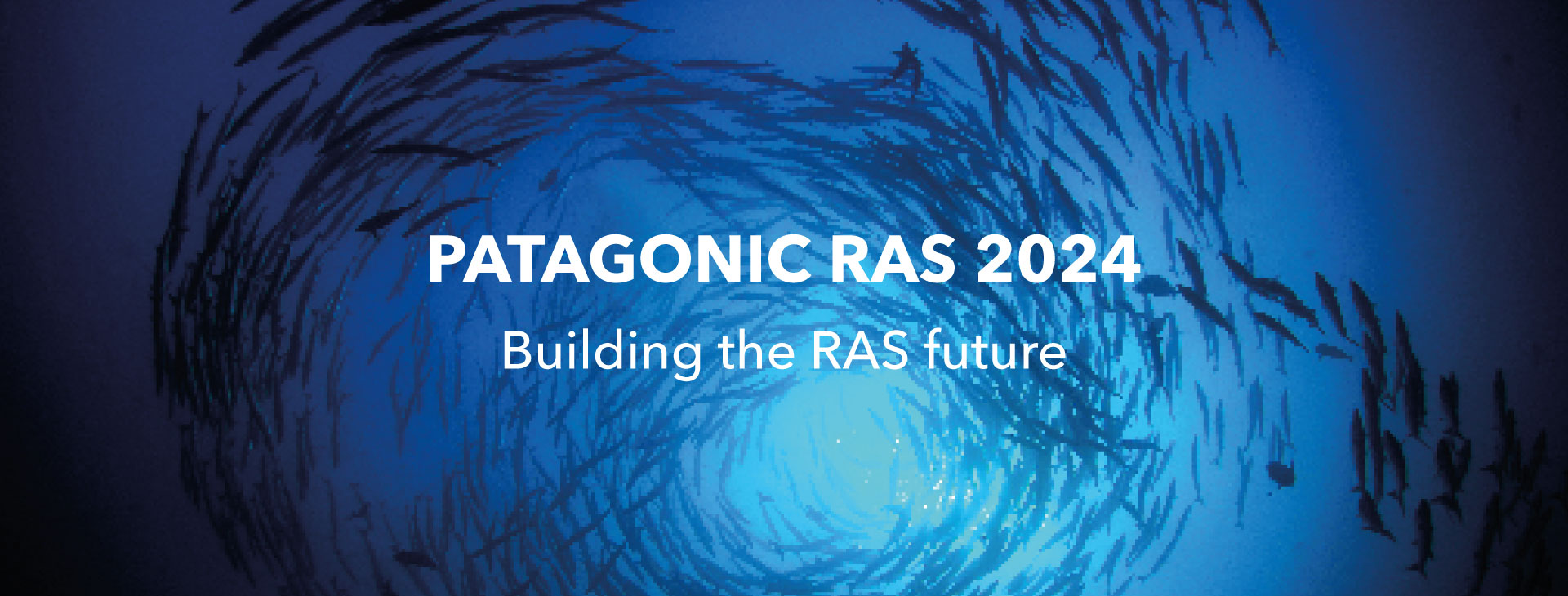
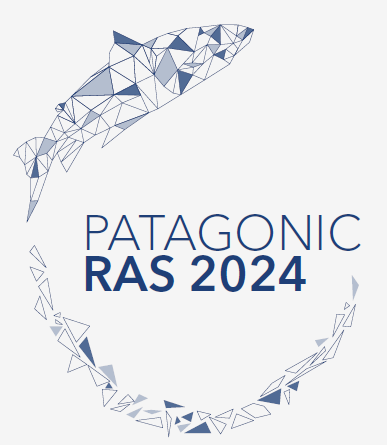
Celebrate
with us 10 years of
Patagonic RAS
Patagonic RAS is the most relevant international conference in Latin America on recirculating aquaculture systems.
Every two years, it brings together leading organizations, experts from around the world and key industry players for a full day of talks and networking at the gateway to Chile's Patagonia.
The event aims not only to share knowledge and experiences, but also to foster collaboration to advance RAS aquaculture.
In the face of the political, climatic and social changes that are occurring globally, whether for juvenile, smolt and post-smolt production or the complete culture-to-harvest cycle, RAS technology continues to lead the expansion of the aquaculture industry worldwide.
Maximizing the potential of recirculating aquaculture requires integrating know-how with technological, scientific, genetic and nutritional advances.
-
Días
-
Horas
-
Minutos
-
Segundos
Join key industry players to
build the RAS future together!
Register now
Three thematic sessions
Session
Production & system management
RAS production requires specific knowledge, but also a high degree of Know How. In this session we will share experiences and insights into commercial production from different regions, as well as future data-driven strategies for optimizing production and system management.
Session
Targeted nutrition for optimal fish and system performance
In this session we will address the latest innovations and scientific advances in nutrition to achieve optimal fish and system performance while minimizing environmental impact.
Session
Fish Health Welfare in RAS
Among the factors that explain the increase in RAS production is the prevention of certain health problems. However, production in RAS also presents challenges. In this session, we will explore the complex interplay between fish, system and production management to ensure optimal fish health and welfare.
Speakers
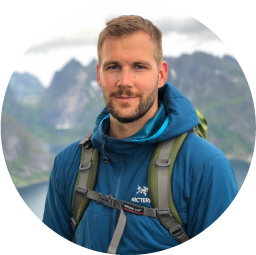
Marius Takvam
Marius Takvam is an aquaculture biologist with more than 10 years of experience in aquaculture and training in fish physiology, molecular biology and smoltification. PhD candidate at the University of Bergen (UiB), he holds a part-time position as a research assistant at the Norwegian Research Center (NORCE). Marius focuses his work on the interaction between fish physiology and the environment in land-based facilities. In recent years, he centered his research on kidney development and health through critical life stages, with special attention to salt-water balance and acid-base regulation.
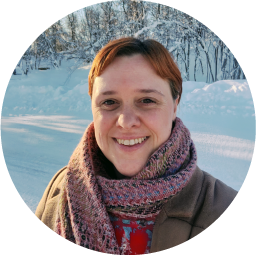
Jelena Kolarevic
Jelena Kolarevic is a biologist, professor in RAS biology at the Arctic University of Norway (UiT) and a senior researcher at Nofima. She has been working with Recirculating Aquaculture Systems and production of Atlantic Salmon in RAS since 2008. She focuses her work on the interaction between the fish and its environment, fish welfare, the environment and fish monitoring, as well as automation in RAS.
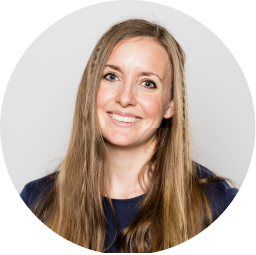
Ida Johansen
Dr. Ida Beitnes Johansen is an associate professor in physiology at the Norwegian University of Life Sciences, where she also obtained her PhD - focused on stress responsiveness in salmonids - in 2011. Her research interests include vertebrate phenotypic plasticity in response to environmental and biological factors, with a current emphasis on salmonid cardiovascular physiology and pathology. Her work investigates the factors that stimulate adaptive and maladaptive remodeling of the salmonid heart, with a particular emphasis on pathological remodeling and heart disease in farmed Atlantic Salmon.
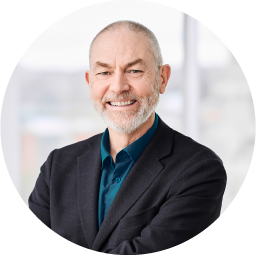
Andrew Campbell
Andrew Campbell is a highly recognised executive in the global aquaculture industry, with over 30 years of experience. He is currently CEO of AQ1 Systems, the global leader in behaviour-based intelligent feeding solutions for aquaculture. Previously, he held several positions at AKVA Group, the latest as International COO, overseeing the sea-based business outside Norway. Prior to his technology career, he was a farmer at NZ King Salmon for 13 years. Andrew has a BSc in Marine Biology from Victoria University, New Zealand and is dedicated to advancing sustainable aquaculture through new technologies.
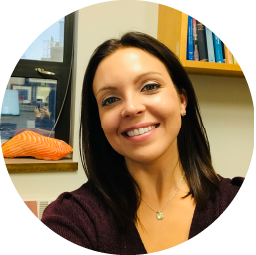
Stefanie Colombo
Dr. Stefanie Colombo is an Associate Professor at Dalhousie University and a Tier II Canada Research Chair in Aquaculture Nutrition. Her research focuses on farmed fish nutrition to enhance aquaculture sustainability and productivity. She has published over 80 scientific papers and 5 book chapters and has been a keynote speaker at numerous national and international conferences. Stefanie was awarded with the Dalhousie President’s Research Excellence Award for Emerging Investigators and the Faculty of Agriculture’s Early Career Research Excellence Award, as well as named Innovator of the Year by the Aquaculture Association of Nova Scotia and honored as a member of the New College of the Royal Society of Canada in 2023.
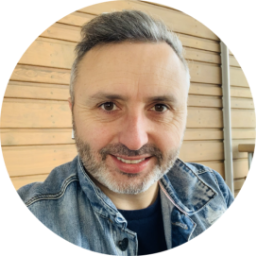
Marco Rozas
Marco Rozas is the founder and CEO of Pathovet Labs, with presence in Chile and Brazil. He is a Veterinarian, MSc and PhD in fish pathology and immunology, with vast experience in the diagnosis, prevention and control of diseases in salmon and tilapia farming. He has received training in Japan, Scotland, Denmark and Norway. Furthermore, he serves as a visiting professor in the PhD programs in Aquaculture Sciences at the university Universidad Austral de Chile. He is also review editor of the comparative immunology section of the scientific journal Frontiers in Immunology and a guest editor of Fish and Shellfish Immunology.
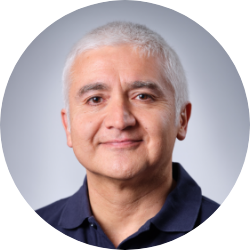
Claudio Larrain
Claudio Larraín is a veterinarian graduated from the Universidad Austral de Chile. He has nearly 30 years of experience in the Chilean salmon industry, first in the production and health areas, and then as technical and commercial director of several companies in the sector. Currently, Claudio is sales director at Corbion, where he focuses on the development of alternative and sustainable sources of Omega 3, such as Alga Prime, for the Latin American aquaculture market, aiming at countries such as Mexico, Ecuador, Colombia, Peru and Chile.
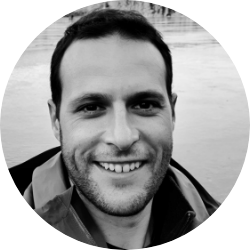
Manuel Sardinha
Manuel Sardinha graduated in Marine Biology & Aquaculture from Algarve and Wageningen Universities (Portugal and Netherlands). He then expanded his skills through a Post-graduation in Management from Algarve University and further specialized in Data Science & Machine Learning from MIT (USA). His work focuses on nutrition modeling and raw materials optimization, to create high-quality and sustainable feeds, that enhance the performance, health, and welfare of farmed fish and shrimp, relying on data-driven insights. As a Scientist at BioMar, Manuel brings over a decade of experience in animal nutrition and aquafeed formulation, contributing to innovative feed development for the aquaculture industry.
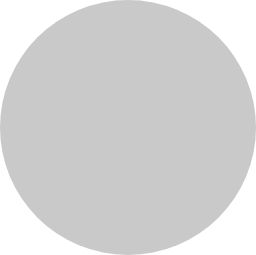
Sebastien Rider
Sebastien is a global aquaculture scientist in animal nutrition and health and project manager at DSM-Firmenich Nutritional Products. He holds a BSc from Edinburgh Napier University, an MSc in Applied Marine Science and a PhD in Fish Nutrition, both from the University of Plymouth. Following his studies, Sebastien worked as a governmental fish health inspector in Scotland followed by eight years of biomedical research at the University of Edinburgh. Prior to DSM-Firmenich, Sebastien was assistant manager in one of the world’s first full cycle salmon RAS farms in Switzerland and continues to advise on RAS farm design.

Jean Paul Lhorente
Jean Paul Lhorente, Technical and Genetics Manager of Benchmark Genetics Chile, holds a PhD in aquaculture from the University of Chile, the Pontificia Universidad Católica de Valparaíso and the Universidad Católica del Norte. He graduated as an agronomist engineer from the University of Chile, specializing in animal science, and then completed a master's degree in aquaculture science from the same institution. He has more than 20 years of experience in the national and international aquaculture industry, leading genetic improvement programs and research and development (R&D) projects focused on optimizing aquaculture production. His work is centered on genetic improvements and their impact on production, contributing significantly to the advancement of the sector.

Elisabeth Aasum
Elisabeth Aasum is the Global Innovation Manager at BioMar, where she has been a key contributor to the R&D department since 2012. She oversees a diverse range of R&D initiatives focused on fish health, smolt, raw materials, and sustainability. Elisabeth holds a degree in Fish Health Biology from the Arctic University of Norway, with a strong scientific foundation in aquaculture and innovation.

Øivind Skjevling
Øivind Skjevling holds an MSc from the Norwegian University of Science and Technology (NTNU). After building a solid background in the supplier industry for aquaculture, he served in the oil and gas industry as a project manager. Later, he transitioned back to aquaculture, applying his project management skills to spearhead the design and construction of a Recirculating Aquaculture System (RAS) facility, leading a multidisciplinary team and using in-house expertise to design a custom system. Øivind currently serves as Managing Director and Operations Director at Nordlaks Smolt, where he continues to drive operational excellence and innovation in aquaculture.

Carlo C. Lazado
Carlo C. Lazado is a senior scientist in fish health in Nofima. He obtained his PhD in Aquatic Biosciences from the University of Nordland (now Nord University) and conducted his postdoctoral training at the Technical University of Denmark and Ben-Gurion University of the Negev. His research addresses the basic and applied aspects of fish health with a strong focus on the physiology and immunology of mucosal barriers in fish. He studies the complex physical and biological barriers, such as cells and molecules, that make up fish mucosa, as well as how these barriers are influenced by environmental factors, including light, handling, nutrition, treatments, infections, and water quality. In recent years, his research has focused on how the conditions in RAS affect fish health, with a specific interest in their impact on mucosal health.



